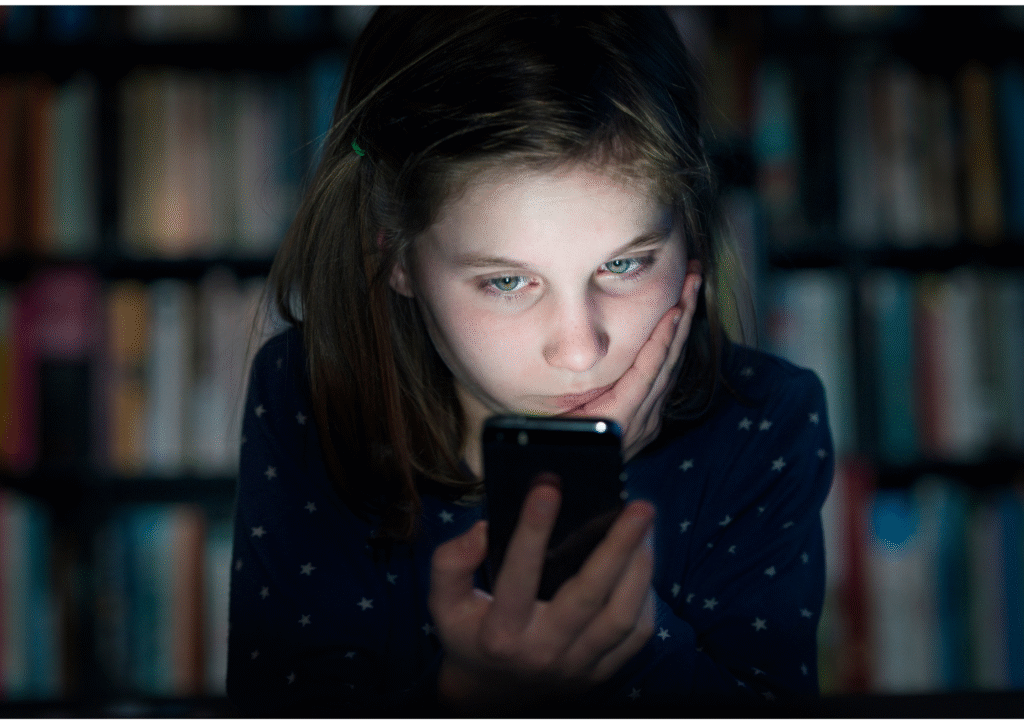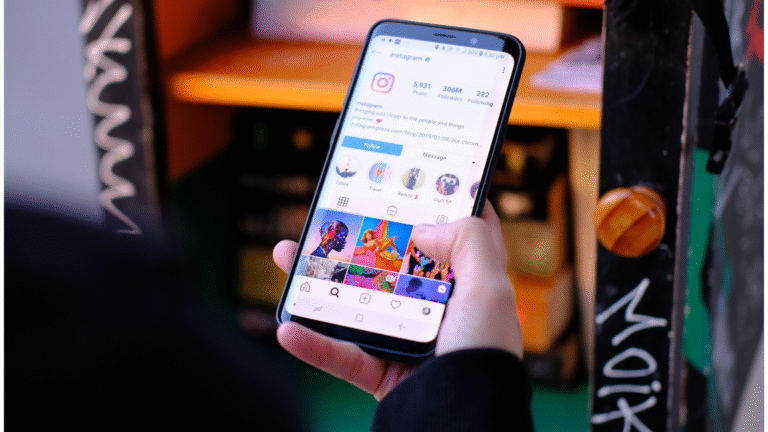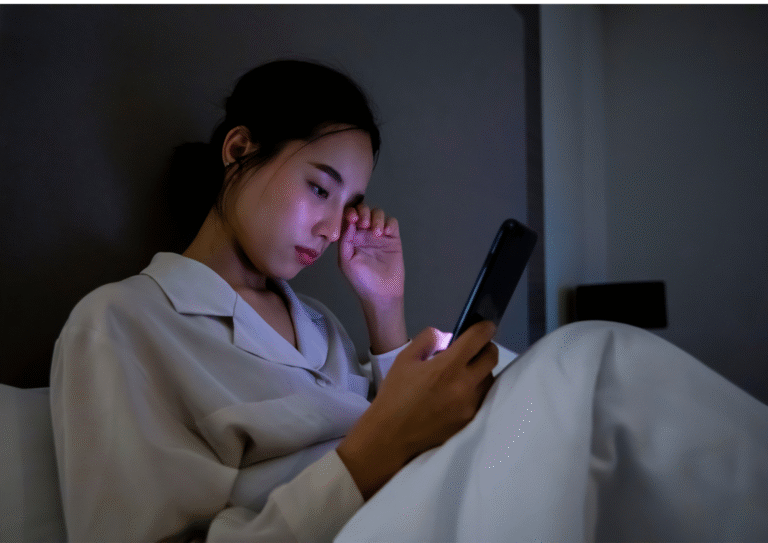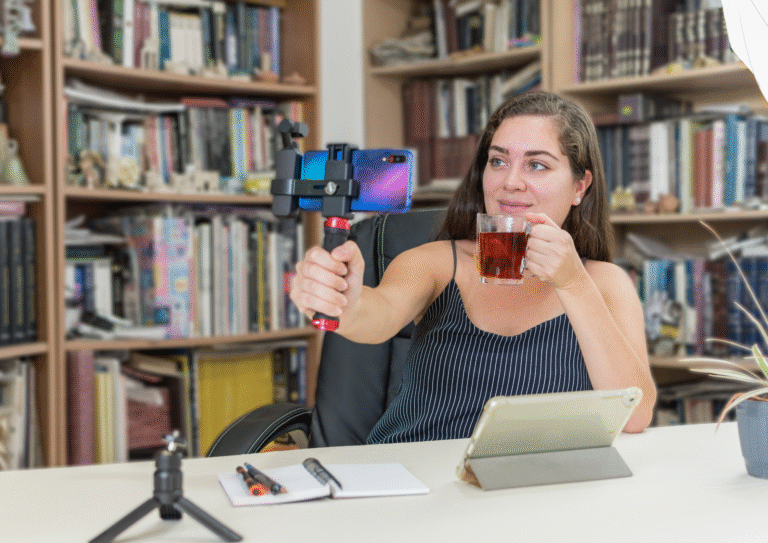
Ever feel totally exhausted but just can’t stop looking at your phone? Learn how your brain gets hooked by a “dopamine trap” and how to use science to break free and get real rest.
What if your biggest struggle is lying in bed, feeling completely worn out, but you just can’t put your phone down and stop scrolling? It’s like your fingers have a mind of their own, pulling you deeper into your screen. If you keep reading, you’ll discover exactly how your brain got tricked into this “dopamine trap.” You’ll also learn science-backed steps you can take to finally break free and get the rest you need.
Why understanding The Dopamine Trap matters more than you might think. This isn’t just about having bad habits when you’re tired. This constant scrolling actually causes real changes in your brain, affects your mood, and messes with your ability to focus during the day. It’s a bigger deal than just staying up too late.
However, some people might say that scrolling on your phone helps you relax or stay connected with friends, and that it’s harmless if you only do it a little bit. But what brain scientists are finding tells a different story. Neuroscience, which is the study of the brain, shows that these endless swipes and constant updates actually “hijack” or take over your brain’s natural reward system. This turns what might seem like a way to relax into something closer to an addiction, where your brain constantly craves the next thing.
1. Dopamine: Your Brain’s Sneaky Reward Engine
Scrolling on your phone feels good because each new picture, video, or notification can release a special chemical in your brain called dopamine. Think of dopamine as your brain’s “feel-good” chemical. It’s released when you do something pleasurable, and it makes you want to do that thing again. It’s like your brain is saying, “Hey, that was fun! Let’s do it again!”
Even when you’re doomscrolling . , . which means scrolling through upsetting or negative news . , . research shows your brain still gets a hit of dopamine. [1, 2] This might seem strange, but your brain is reacting to the new information, even if it’s bad. Social media apps are designed to activate the same reward centers in your brain that are triggered by things like gambling or even certain drugs. This encourages you to keep chasing that next “hit” of dopamine. [3, 4] As a result, your brain quickly learns a simple rule: “scroll for dopamine!” It starts doing this automatically, even if you’re super tired and know you should be sleeping.
2. Variable Rewards: The Slot Machine Effect
What really keeps you hooked on social media is that you never quite know what you’re going to see next. It’s the unpredictability of getting a like, seeing an interesting video, or reading a surprising headline that makes it so hard to stop.
Scientists have found that variable rewards . , . meaning rewards that come at unexpected times . , . trigger much more dopamine in your brain than rewards you can predict. [5, 4] For example, if you knew exactly when you’d get a like, it wouldn’t be as exciting. But the surprise makes your brain want it more. This is why neuroscientists, who study the brain, often compare endless social media feeds to slot machines. You pull the lever (or swipe your finger), and you never know when the next big “win” (a funny video, a friend’s comment) is going to pop up. [6, 7] This unpredictability is incredibly powerful because it trains your brain to constantly crave “just one more scroll,” hoping for that next exciting moment.
3. Brain Restructuring: Your Brain Changes
The more time you spend scrolling, the more your brain actually changes and adapts. And sometimes, these changes are not very helpful for you.
When you overuse social media, your brain starts to “prune” or cut back on certain connections. It might make the reward pathways faster, so you get that dopamine hit even quicker. But at the same time, it can weaken the parts of your brain responsible for self-control. [3, 8] Studies have shown that people who use social media a lot can have less gray matter in areas of their brain that are tied to making good decisions and managing emotions. [3, 9] Gray matter is the part of your brain that processes information and helps you think. As a result of these brain changes, it becomes even harder to put your phone down . , . even when you are totally exhausted and know you need to rest.
4. Doomscrolling: Anxiety in Disguise
Doomscrolling is when you keep scrolling through negative, upsetting, or worrying news and content online. This habit often mixes being tired with feeling stressed out.
Even though doomscrolling can trigger a little dopamine (because your brain is getting new, albeit negative, information), reading upsetting content mainly causes a spike in anxiety and stress hormones. [4, 10] This can lead to something scientists call “brain rot” over time. It means you become less sensitive to emotions, feel more tired, and have trouble concentrating. [11, 12] However, it’s easy to trick yourself into thinking that this kind of scrolling is a way to “relax” or “stay informed.” But in reality, it’s actually draining your mental and emotional energy even more.
5. Digital Overload and “Popcorn Brain”
Being constantly hit with alerts, notifications, and quick dopamine rushes from your phone can make it hard for your brain to focus on one thing. It breaks your attention into many small pieces.
Spending too much time looking at screens can actually damage your memory, how well you learn new things, and your ability to pay attention. [9, 13] The term “Popcorn Brain” describes that jittery, scattered, and easily distracted feeling you get from being constantly connected and overwhelmed by digital information. [14] Your brain gets so used to quickly jumping from one thing to another, like popcorn popping. As a result, even when you’re tired, your brain responds more strongly to your phone trying to get your attention than it does to cues telling you to rest.
“I once lay awake scrolling so long I forgot my original reason . , . it was to stop scrolling.”
This is a quiet, slightly funny thought, but it shows how truly fooled your brain can be by the dopamine trap.
Why This Dopamine Trap Matters
This isn’t just about simple habits you can easily change. It’s about how your brain works:
- You’re teaching your brain a reward cycle that completely ignores the fact that you’re tired.
- You’re actually changing the way your brain is built and connected.
- You’re confusing those quick, short-term hits of pleasure from scrolling with real, calming rest that your body and mind actually need.
This explanation of The Dopamine Trap: Why You Keep Scrolling Even When You’re Tired shows why understanding how your brain responds gives you the power to get back your rest and focus.
Practical Ways to Break the Trap
You can actively break free from the dopamine trap. Here are simple, practical things you can do to get back control:
- Set App Timers or Screen Time Limits: Use the special controls built into your phone or apps to limit how much time you spend on social media.
- Disable Unnecessary Notifications: Turn off all alerts for likes, comments, or new posts. This removes those little “dopamine triggers” that make you want to check your phone.
- Add Friction: Make it harder to open apps quickly. For example, force yourself to log out of apps after each use, or move distracting apps off your home screen into a folder.
- Schedule Tech-Free Wind-Downs: Decide on specific times when you won’t use screens, like no phone for an hour before bed. This helps your brain relax.
- Replace Screen Time with Better Rest: Instead of scrolling, try other calming activities that truly help you rest. This could be reading a physical book, doing some gentle stretching, or practicing deep breathing exercises.
- Try a Dopamine Detox: This means taking a short break from things that give you quick dopamine hits (like social media, gaming, excessive sugar). It can help reset your brain’s sensitivity to rewards, making real-life activities more enjoyable. [15]
Conclusion & Your Next Step
The dopamine trap is a real thing. Your brain gets trained to constantly crave that next scroll, even when you’re incredibly tired. But by understanding how your brain works and making some small changes, you can actually “rewire” that loop.
Your Next Step: Tonight, try disabling all social media notifications on your phone. Notice if you sleep better or feel less anxious. Build from there. Because true rest isn’t about endless scrolling . , . it’s about finding moments of pause, gaining clarity in your mind, and feeling real calm.
Sources
- Journal of Communication. “Doomscrolling and Well-being: A Scoping Review.” Published December 12, 2022. https://academic.oup.com/joc/article/73/1/1/6888461
- Psychiatry and Clinical Neurosciences. “The neural basis of internet addiction: A neuroimaging review.” Published July 2017. https://onlinelibrary.wiley.com/doi/full/10.1111/pcn.12521
- Translational Psychiatry. “Reward system hyperfunction and gray matter volume reduction in internet addiction.” Published January 19, 2021. https://www.nature.com/articles/s41398-020-01188-7
- Scientific American. “The Science Behind ‘Doomscrolling’.” Published January 27, 2021. https://www.scientificamerican.com/article/the-science-behind-doomscrolling/
- Nature Neuroscience. “Dopamine and the economics of uncertain reward.” Published February 2018. https://www.nature.com/articles/s41593-017-0072-8
- McLean Hospital. “Is Social Media Causing a Teenage Mental Health Crisis?” (Featuring Dr. Jacqueline Sperling). Published March 26, 2020. https://www.mcleanhospital.org/essentials/social-media-teenage-mental-health-crisis
- The Guardian. “The dark psychology of social networks – and how to fix it.” Published April 21, 2017. https://www.theguardian.com/technology/2017/apr/21/the-dark-psychology-of-social-networks-and-how-to-fix-it
- Psychology Today. “How Social Media Affects Your Brain.” Published May 15, 2023. https://www.psychologytoday.com/us/blog/the-modern-brain/202305/how-social-media-affects-your-brain
- Journal of Affective Disorders. “Brain structural and functional changes in problematic internet use: A meta-analysis of neuroimaging studies.” Published February 15, 2021. https://www.ncbi.nlm.nih.gov/pmc/articles/PMC7808298/
- Frontiers in Psychology. “The Impact of Social Media on Mental Health: A Review.” Published July 2, 2019. https://www.frontiersin.org/articles/10.3389/fpsyg.2019.01426/full
- Psychology Today. “Is Your Phone Causing ‘Popcorn Brain’?” Published January 26, 2018. https://www.psychologytoday.com/us/blog/the-addiction-connection/201801/is-your-phone-causing-popcorn-brain
- The Conversation. “Doomscrolling is real, and it’s a symptom of deeper problems with news and social media.” Published August 10, 2021. https://theconversation.com/doomscrolling-is-real-and-its-a-symptom-of-deeper-problems-with-news-and-social-media-165843
- U.S. Department of Health and Human Services, Office of the Surgeon General. “Social Media and Youth Mental Health: The Surgeon General’s Advisory.” Published May 2023. https://www.hhs.gov/sites/default/files/social-media-and-youth-mental-health-advisory-05232023.pdf
- Harvard Health Publishing. “Social media and anxiety.” Accessed July 21, 2025. https://www.health.harvard.edu/blog/social-media-and-anxiety-2018052913987
- Cleveland Clinic. “Dopamine Detox: Does It Work?” Published January 10, 2024. https://health.clevelandclinic.org/dopamine-detox




